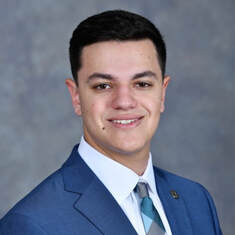Adam KeylinTemple Actuarial Student (Graduation 2024)
|
Whether you study best by reading a textbook or by watching video lessons, I recommend using Coaching Actuaries (CA) as the best way to study for the preliminary actuarial exams. In addition to the Learn feature, you can also take advantage of Adapt, which contains an exhaustive question bank that changes in difficulty based on how well you are doing. CA also provides an exam study schedule which I have found very useful for sticking to a study plan and not guessing how much to study each day. Studying for any actuarial exam is a grind, so the most important thing is to stay consistent. My biggest piece of advice is that even on days when you feel absolutely no motivation to study, try to sit down and either do problems, read material, or watch video lessons for just 15 minutes. It’s not a long time and should be easy enough to sit through regardless of your motivation level. I find that if I am unmotivated and just start studying for 15 minutes with no distractions, more often than not I end up studying for much longer because I get in a studying groove. I’ve also found it helpful to study at the same time each day, typically in the morning while my mind is still fresh and switch up my study location frequently to stay motivated. There are also times when using CA when you may start to do very well with practice problems, so the system gives you more difficult problems and you end up getting everything wrong. When this happens, I typically turn down the difficulty level a little bit to build my confidence back up and then try again later with a higher difficulty. One last note on using CA to study is to make sure to redo problems when you get them wrong and truly understand the solution instead of just skipping to the next problem. You can do all the problems in the world but if you don’t understand the concepts at a deeper level, the exams will still be very difficult. Good luck studying!
|
Jake WalinskyPenn State Grad (2023)
|
Exam P will likely be your first exam taken and studying for it is a huge adjustment as it is unlike any in class exam you’ve taken before. Putting in several hours each day weeks and even months leading up to the exam are necessary in order to pass. So, my biggest piece of advice would be to stay consistent with your studying as much as possible. Everyone needs their breaks from studying every now and then, but I would advise to be really careful with them because one planned day off could easily turn into 3 or 4, or even more. To make sure this didn’t happen, one thing I would like to do during my break days is do some light review for at least 15-20 minutes just to keep myself in rhythm for the following days. Overall, the biggest thing with Exam P, and even every other exam, is consistency. If you can find a way to stay disciplined and consistent with your studying leading up to the exam, you will put yourself in the best situation possible to pass.
|
Maggie WhalenPenn State Student (Graduates 2024)
|
My biggest piece of advice would be to do as many practice problems as possible, get familiar with all the different types of problems they could ask. I would suggest if you are going to take it after RM 214 to study outside of the class more than you normally would for a normal class. I failed the first time because I didn't study enough during RM 214 to take the exam in May, so definitely make sure you have enough time to put in as many hours as possible before sitting for the exam! I would also recommend Coaching Actuaries or TIA.
|


